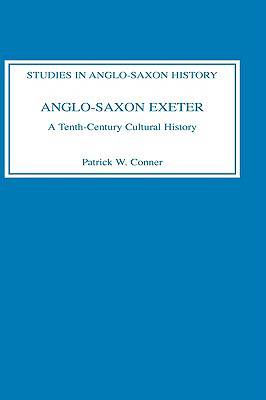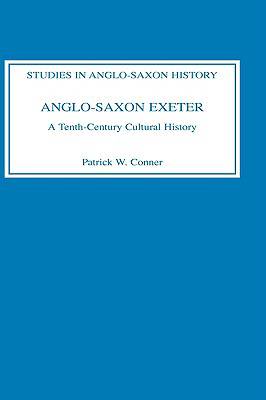
Bedankt voor het vertrouwen het afgelopen jaar! Om jou te bedanken bieden we GRATIS verzending (in België) aan op alles gedurende de hele maand januari.
- Afhalen na 1 uur in een winkel met voorraad
- In januari gratis thuislevering in België
- Ruim aanbod met 7 miljoen producten
Bedankt voor het vertrouwen het afgelopen jaar! Om jou te bedanken bieden we GRATIS verzending (in België) aan op alles gedurende de hele maand januari.
- Afhalen na 1 uur in een winkel met voorraad
- In januari gratis thuislevering in België
- Ruim aanbod met 7 miljoen producten
Zoeken
Omschrijving
In his search for an historical context for the famous Exeter Book of Old English poetry, Dr Conner's examination of the archaeological and textual records of Exeter have led him to significant new conclusions about the city's tenth century monastic culture. He posits the existence of a large library dating from the time of King Æthelstan, an active scriptorium from at least the mid-century period, and suggests that five other important manuscripts may have originated at Exeter c.950-c.990.A codicological examination of the Exeter Book draws fresh conclusions about its composition and its literary context. 'Anglo-Saxon Exeter' concludes with six appendices in which many documents important to the early history of the city are edited, including its relic-lists, the records for moving the see from Crediton to Exeter, Leofric's Inventory, a series of legal records which survive on a single leaf of an 8th-century lectionary, and a study of the history of the Exeter Book from 1050 to the present. PATRICK CONNER is Professor in the department of English at West Virginia University.
Specificaties
Betrokkenen
- Auteur(s):
- Uitgeverij:
Inhoud
- Aantal bladzijden:
- 292
- Taal:
- Engels
- Reeks:
- Reeksnummer:
- nr. 4
Eigenschappen
- Productcode (EAN):
- 9780851153070
- Verschijningsdatum:
- 5/08/1993
- Uitvoering:
- Hardcover
- Formaat:
- Genaaid
- Afmetingen:
- 156 mm x 234 mm
- Gewicht:
- 612 g

Alleen bij Standaard Boekhandel
+ 418 punten op je klantenkaart van Standaard Boekhandel
Beoordelingen
We publiceren alleen reviews die voldoen aan de voorwaarden voor reviews. Bekijk onze voorwaarden voor reviews.









